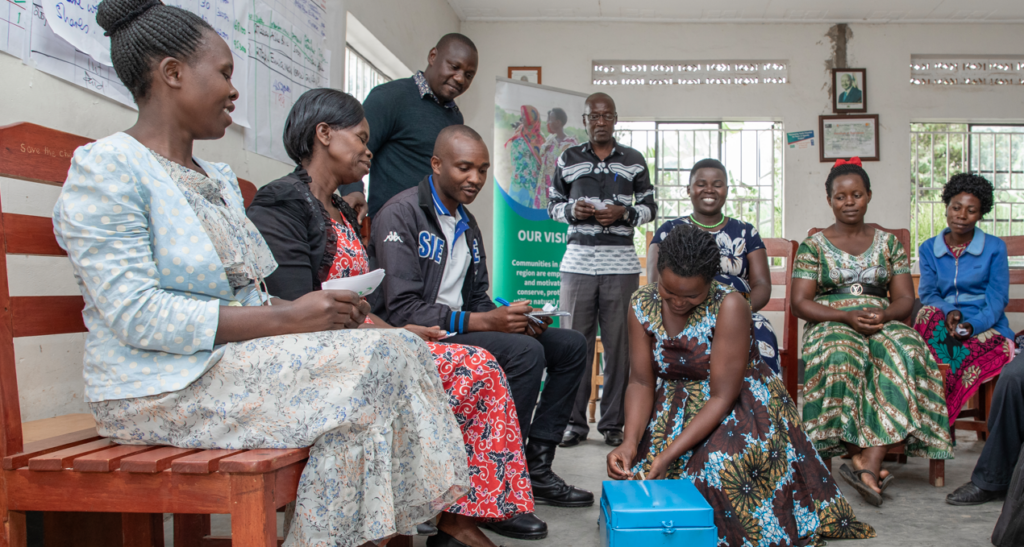Uganda – About a year ago, the WORIA (Women River Ambassadors) initiative was established in Uganda. This group of women has taken on the management of the river buffer zones of the Mpanga River in Karangura.
Join For Water and its partners set up the WORIAs in response to a lack of community-wide support for riverbank management initiatives. Traditionally, it was mainly men who managed the riverbanks in Karangura. This often led to deforestation to make way for agriculture and housing, resulting in collapsing banks, flooding homes and fields, failed harvests, and river pollution.
Taking responsibility
By involving women and giving them a say, we aimed to improve the situation. Seventy-five women have been trained as Women River Ambassadors. Each took responsibility for a segment of the river and received training in sustainable agriculture, ecosystem protection, and the importance of trees for strong riverbanks. Their tree planting initiatives have reduced the risk of flooding and encouraged their fellow villagers not to build too close to the river.
After a year of work, it is clear that the women share a common vision and are eager to bring about positive change. Our work has brought us to a level of understanding the boundary conditions that will enable WORIAs to thrive and take strides towards achieving their desired vision. We have learned that it is not enough to mobilize the WORIAs for action, but they need to sustain this collective effort.
Barriers to be overcome
As WORIAs they need the right tools, to battle through the Social, Economic and Environmental barriers that limit their potential to become drivers of positive change in managing the Land River Interface.
While we had initially planned to develop a simple curriculum, train the WORIAs on the complexities in the Land River Interface, co-create the River buffer management with them, and create spaces for them to engage duty bearers in the river planning and decision system, we realize that these wonderful initiatives need an additional component that will sustain the model after the end of the project experimental period.
So, during our reflections and feedback meetings with the WORIAs, we acknowledged that we needed to set up a Village Savings and Loans Association as a key boundary condition that will not only sustain the established WORIA groups but also build the momentum for collective action.
Together with the WORIAs, we got back to the drawing board and have made some additions to the system. We adopted the VSLA (Village Savings and Loans Association) approach. This that will introduce financial literacy and economic transformation of the WORIAs using a simple methodology based on socialization. This involves the WORIAs saving and loaning together to address their personal and household needs, while supporting one another in sharing and addressing emerging social issues.
River management remains the core task
The VSLA approach will be layered with the objective of River management as the core vision of the WORIAs. As such, the VSLA will encourage the WORIAs to meet at least once in a week, with a purpose to save and loan together, but also use this as a ‘safe space’ to discuss emerging challenges within their society, within them as individuals and within them as a group.
With this, there will be an opportunity to let the experiment evolve naturally into many more insights that we may not visualize within the short experimental period of one year but will live on as long as the WORIAs exist.
Ultimately, with improved flood management and richer harvests, the women will be able to claim more influence in water management decisions, which are today predominantly made by men.
![]()


